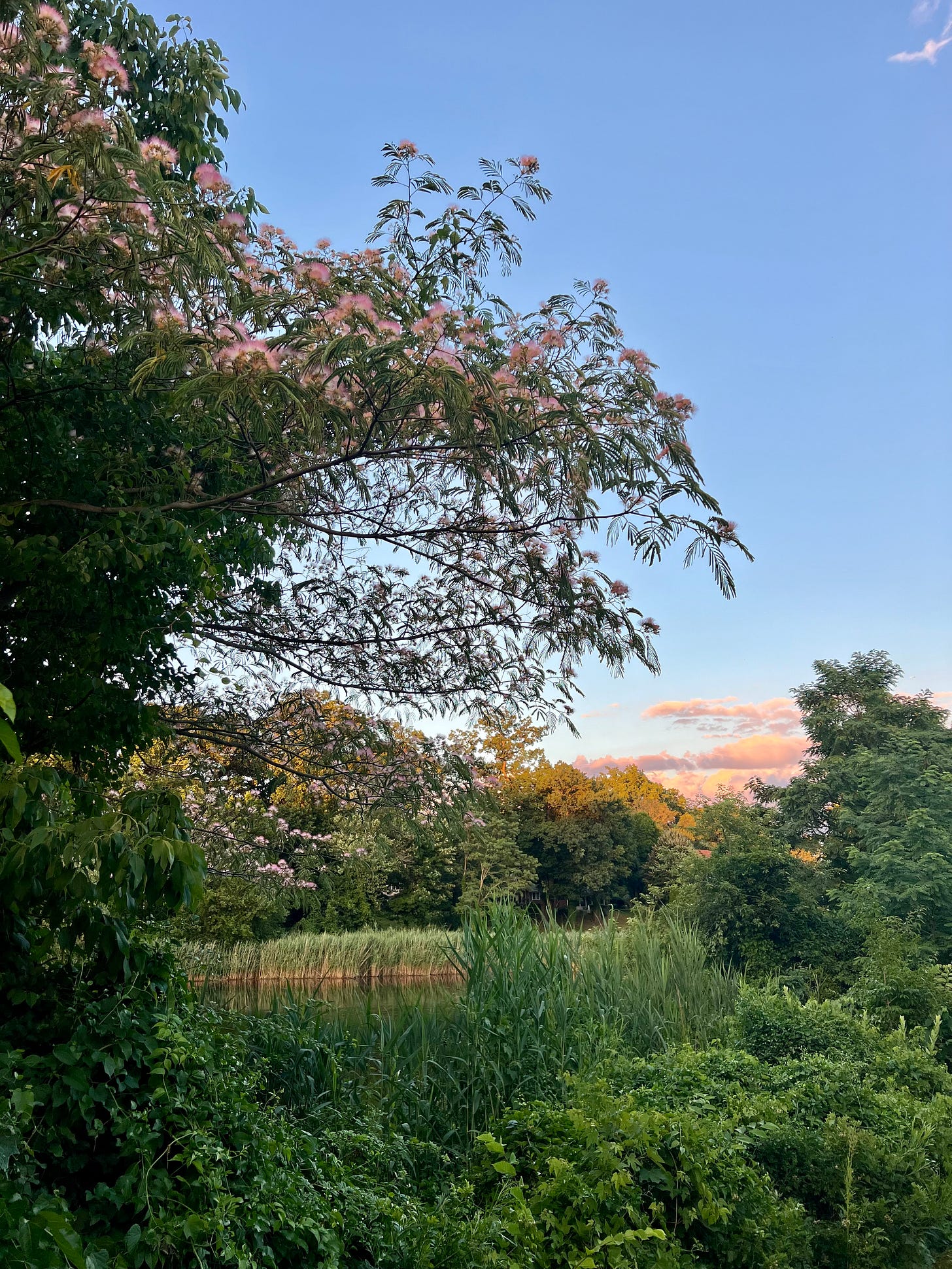3 Key Questions for a Week of Alignment
"How we spend our days is, of course, how we spend our lives." - Annie Dillard
TW: mention of eating disorders.
Getting Mindful
Wherever you might be joining from, settle into this moment.
Tap into your senses by noticing the sounds around you. Point them out one by one. Next, take three deep breaths.
Count to four as you breathe in, hold, release, and rest.
Finally. Welcome to the present.
As thoughts begin to emerge, notice them, and then let them go as you return to the breath. Allow yourself to be aware of the openness of this moment, as whatever you were doing just before this washes away behind you.
Here, in the generous expansiveness of the present, you are free to be as you are. Recognize your autonomy in choosing to slow down and connect with yourself in this moment. Now, take one last deep breath as you integrate this knowing.
Thank you for taking that moment of mindfulness. By being in this space, we can enter a practice of introspection with openness, autonomy, and compassion.
Priming Yourself for Introspection
When I started my healing journey four years ago, I was working closely with a nutrition counselor who was supporting my recovery from an 8-year-long battle with eating disorders. In those first few sessions, I learned about a simple and powerful tool that I continue to reach for in every chapter of healing:
Curiosity.
Using curiosity as a tool to understand my triggers empowered me to heal the core wounds and stories behind them. It allowed me to gain a sense of agency in how I felt and showed up on a daily basis, and enabled me to create lasting change in my life.
Curiosity is incredibly powerful because it’s a method for self-discovery that neutralizes shame and judgment and focuses on understanding and learning as key motivators.
Think about the last time you picked up your phone to Google something you wanted to learn more about. Whatever piqued your curiosity, the process of finding the answer to your question may have felt like a quest. We feel excited as a result of connecting with ourselves through curiosity and whatever we’re learning about.
Now, imagine turning that quest inward. You’ll discover that there are many parts to who we are, parts we weren’t aware of that have primary roles in shaping how we feel and how we show up in the world. By applying this technique, we can start to inquire deeper about them and regain a sense of agency and compassion in ourselves.
Here’s how to apply curiosity for self-discovery:
When thoughts or feelings that might feel challenging arise, try gently noticing them and saying something to them like, “That’s interesting <thought or feeling>; tell me more about that.”
Create some space for that thought or feeling to have a dialogue with you, and focus on being a good listener.
Ask follow-up questions and meet that thought or feeling with love.
When I did this, something really cool kept happening: I’d create space for whatever I was curious about to come up and wouldn’t end up identifying with it too much.
If I was getting curious about a time I made a mistake, this process would reduce hard feelings like shame or anger by gently neutralizing stories that formed from that experience, such as “I’m a failure.” Each time I practiced this, I enforced a foundation in my relationship with myself based on trust, self-respect, and self-love.
So, as you dive into these 3 questions, prime yourself for introspection by leading with curiosity. You might just find that starting off with a beginner’s mind allows you to make a real shift this week.
3 Key Questions for a Week of Alignment
You made it to the introspection portion of this week’s post! Great work :)
Tip: Grab a notebook, open your notes app, or find literally anything to write on before reflecting on the following questions. You’ll want to jot down notes as you go.
As you go through these questions, think about last week. If you feel called to expand that timeline, feel free to go through the past month, but not further than that for now. Read through the questions once, and then go back and sit with each for a few minutes and write down what comes up for you:
What went well or felt good last week? Is there anything I want to build on or continue to practice this week?
Did anything unexpected or challenging happen last week? What can I learn from it, and how can I integrate it as I move into this week?
What is something I want to try or do this week that’s for me? Pick 1 to 3 things. (e.g. get a pedicure, go for a hike, find a therapist)
Once you’ve completed the exercise, set some intentions for the week based on what you learned. Take it slow and set some small and achievable goals that support these intentions. By doing this exercise once a week, you’ll have a natural touch point to reflect on how things went and how you might want to iterate on the week ahead.
P.S. Whatever day you’re doing this exercise is the best day to do it. It doesn’t matter if it’s Monday, Friday, or literally any other day of the week—you can begin again anytime. I’m proud of you. Be proud of yourself for taking this pretty impactful step.
Let me know what intentions you set in the comments or over chat!
With love,
Shy-lee
“Today is where your book begins. The rest is still unwritten.” -Natasha Beddingfield





Just want to say that I love your writing, Shy-lee. It’s immersive and feels like you’re in the room guiding with care. Proud of you for embarking on your journey of healing and helping others by sharing what you’re learning 💚👌🏾